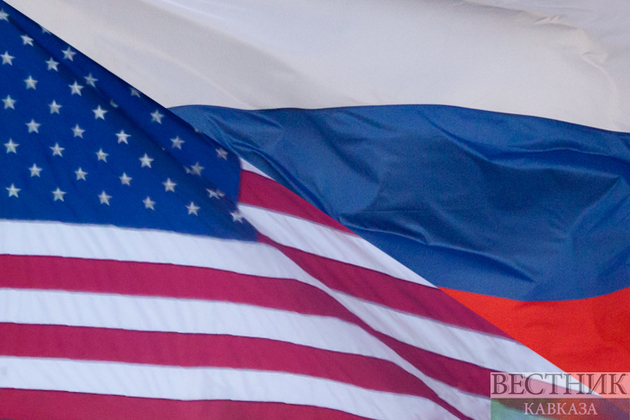Since the beginning of December, Russia has taken various diplomatic measures to reduce tensions with the West. First, Russian President Vladimir Putin asked for written guarantees that NATO would not expand to the East. Then, on December 17, the Russian Foreign Ministry announced the drafts of two documents for the US and NATO to sign. These initiatives were in response to persistent accusations made by American and European politicians against Russia of its plans to attack Ukraine.
The first document (an agreement between the Russian Federation and the United States on security guarantees) implies:
- refraining from actions that undermine each other’s security and fundamental interests;
- non-use of the territory of third countries for an attack;
- non-expansion of NATO to the East;
- refusal to establish military bases in the post-Soviet space and in non-NATO countries;
- non-deployment of weapons in areas posing a threat to the United States and the Russian Federation;
- the termination of flights of heavy bombers and the sailing of ships at a dangerous distance from the borders;
- refusal to deploy short- and medium-range missiles outside its territory and phasing out the already deployed, destruction of infrastructure for nuclear weapons outside national territory.
A similar document on security measures is addressed to NATO. It suggests:
- "hot" telephone contacts for emergency situations and confidence-building;
- assurances that NATO and the Russian Federation do not consider each other to be "adversaries";
- refusal to deploy armed forces on the territory of other European States;
- refraining from deploying short- and medium-range missiles in areas from which they can strike NATO and Russian territory;
- non-expansion of the bloc and renunciation of "military activity on the territory of Ukraine and other countries of Eastern Europe, the South Caucasus and Central Asia"
In an interview with reporters on December 20, Russian Deputy Foreign Minister Sergei Ryabkov noted that the United States has not yet responded to Russia's proposals on security guarantees. If Washington ignores them, this could lead to a new round of escalation, the Russian diplomat had previously warned. Ryabkov also noted that Moscow has not yet decided whether it will abandon the moratorium on intermediate and shorter-range missiles in Europe if the Americans and NATO ignored the proposals on security guarantees.
Despite the delay in responding, there are intense debates on the Russian initiative in NATO and the United States itself. The day before, the State Department announced that the United States, together with its European allies, are ready to propose a list of their demands and concerns about Russian actions. On the same day, December 20, a telephone conversation took place between the aide to the President of the Russian Federation, Yuriy Ushakov, and the adviser to the President of the United States for national security, Jake Sullivan. The latter declared Washington's readiness to participate in diplomatic efforts jointly with Russia through a bilateral format, as well as through Russia-NATO and the OSCE. Sullivan believes that the dialogue with Russia should be carried out in coordination with the European allies.
"Vestnik Kavkaza" asked Sergey Markov, director of the Institute for Political Research, to what extent Russia’s proposals are implementable. The expert believes that NATO's demands to move the Russian troops away from the Ukrainian border make the negotiations themselves unrealistic.
“It seems to me that it (the treaty - editor's note) is completely unrealizable. They have already made reciprocal demands that only in order for negotiations to begin, Russia must change the deployment of military units on its territory to please NATO. Only after that they will start negotiations. At the same time, it is clear that the negotiations will end in nothing, since they consider them a provocation of Russia. And Russia, basically, demands that the West stop behaving aggressively. The West, of course, does not want to stop being an aggressor, but it wants to subjugate Russia. Therefore,agreements of this kind are impossible, until Russia has taken any tough action", he said.
Markov believes that as long as the ultimatum is not followed by concrete actions, they can be perceived as an "empty phrase". In his opinion, Russia is not ready for such actions, with the exception of a "small operation" on the territory of Ukraine, which the West itself fully admits. Such an operation will strengthen the anti-Russian orientation of the Ukrainian state system, the political scientist believes.
As for the proposal of the Russian Foreign Ministry, the West is not going to respond to it, but is waiting for how Russia will react to ignoring this initiative. Based on this reaction, the West will build its further steps, added Markov.
In one of the points of the proposal to NATO, the Russian Foreign Ministry denoted "a refusal to military activity on the territory of the South Caucasus". What exactly do the diplomats from Smolenskaya Square mean here? Is there a hint, for example, of cooperation between Turkey and Azerbaijan?
"There is no hint of Turkey here. Russia makes no demands on Turkey. It is about the US not deploying its military infrastructure in Georgia", Markov explained.
Meanwhile, the British newspaper Financial Times, citing sources, reports that the NATO allies cannot agree on negotiations with Russia on security assurances and their format. At the same time, the NATO countries understand the need for negotiations with Russia, and their military want to "avoid a direct refusal" from Moscow's proposal and are trying to find "areas of mutual agreement and calm the situation."
















